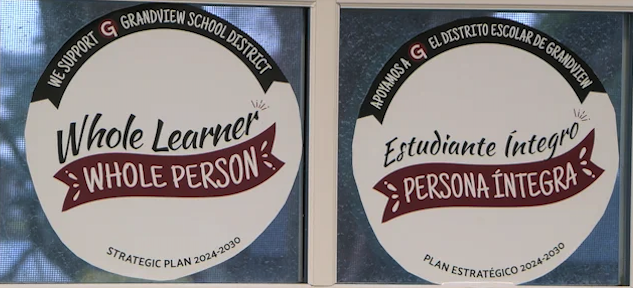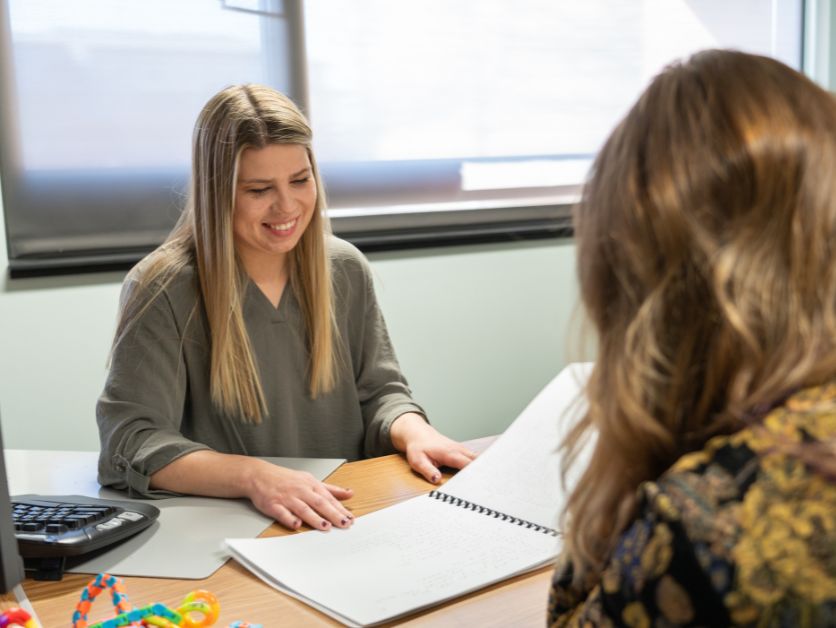
Disability Services
Faculty Resources
Providing academic accommodations to students with disabilities requires collaboration between Disability Services and faculty. This page has been created to address common concerns and answer frequently asked questions. Disability Services staff are also available to provide support as needed.
Disability Services advocates for equal access. In some cases this means supporting students; in other situations, it means supporting faculty. In every situation, the goal is the same: to ensure students with disabilities have an equal opportunity to participate.
Sample Syllabus Statement
Disability Services offers the following example of a syllabus statement for faculty to include in their course syllabi. Faculty using a different statement should verify that the contact information for Disability Services is correct. Please draw attention to this statement on the first day of class, encouraging students with disabilities who need accommodations to register with Disability Services.
Accessibility and Accommodations: Central Washington University is committed to creating a learning environment that meets the needs of its diverse student body. If you anticipate or experience any barriers to learning, discuss your concerns with the instructor. Students with disabilities should contact Disability Services to discuss a range of options to removing barriers, including accommodations. Disability Services is located in Bouillon 205. Call (509) 963-2214 or email ds@cwu.edu for more information.
Specific Accommodations
-
Exam Accommodations
To ensure equal access for timed assessments (tests, quizzes, or exams) some students may need extra time, a reduced-distraction environment, or access to adaptive software, for example. Ensuring that testing accommodations are implemented properly requires collaboration between DS, faculty, and often Testing Services:
Faculty and students are encouraged to meet together to discuss how to implement effective testing accommodations (either in the classroom, online, or through Testing Services). When possible, the student’s preference should be respected.
Completing the Testing Agreement does not obligate faculty to use Testing Services. It is generally best practice to complete the Agreement, just in case it is needed.
Extended time is based on the amount of time provided to other students in the class. Students with disabilities who are approved for extended time must receive their accommodation even if faculty believe they have provided all students with extra time.
Exam accommodations apply to all timed assessments including online tests and ‘pop’ quizzes.
When accommodated exams are administered by Testing Services, complete the following steps in this order:
- Faculty fills out Testing Agreement
- Student schedules a time to take the exam with Testing Services
- Faculty receive email with a link to upload the exam
Because the Testing Agreement provides the information necessary for Testing Services to proctor exams according to your specifications, students are not able to take exams if a Testing Agreement has not been completed. Instructions in the Agreement will be followed as written. If you change the details of the exam (including length and what resources students may use) after completing the Agreement, please notify Testing Services so the Agreement can be updated.
If an exam is administered through Canvas, extra time can be added for an individual student by using the ‘Moderate Quiz’ option.
-
Principles of Accommodations
General eligibility for specific accommodations are determined for each student on an individual basis through an interactive process between Disability Services and the student. Requested accommodations must be supported by the documented effects of the disability. Students must then request an accommodation in each instructional situation and work with the faculty member to implement it. To help faculty understand how to implement these approved accommodations in a wide range of situations, these ‘Principles of Accommodation’ provide a few fundamental guidelines to consider when working with students with disabilities.
Access (not Advantages)
The goal of accommodations is to give students with a disability equal access to the learning environment. Accommodations are not designed to give the student an advantage over other students, to lower academic standards, or to weaken academic rigor. All students should be graded according to the same standards.
When Reasonable Accommodations are Unreasonable
Accommodations should not fundamentally alter or significantly change your requirements to complete a class or program. The determination that an accommodation is a ‘fundamental alteration’ is made by Disability Services in consultation with your dean and others who are trained, knowledgeable, and experienced in the program field. The decision will be a careful, thoughtful, and rational review of the program and its requirements. If you believe an accommodation fundamentally alters the essential elements of your class or program, please contact Disability Services.
No Penalties for using Accommodations (or Beware Unintended Consequences)
Ideally, accommodations are provided in a manner that provides all students an equivalent experience. When this can’t be achieved, you must be certain that there is not an adverse impact on students with disabilities. When scheduling conflicts prevent students from taking their exams at the same time as the rest of the class, students with disabilities should not, for example, be uniformly required to take tests a day early. While in some cases this might be the most appropriate solution, students with disabilities should not routinely receive less time to study than the rest of the class.
Student Choice
While you and the university are obligated to provide students with disabilities equal access to education to the maximum extent possible, students are not legally required to disclose their disability. Nor are they required to use the accommodations they are eligible to receive. If students do not disclose a disability, you do not have to provide accommodations.
Students who disclose a disability to faculty, or request accommodations directly from faculty, should be directed to contact Disability Services.
Students may request accommodations at any point in the quarter, but accommodations are not retroactive.
Too Much Information Can Be a Bad Thing
As you discuss accommodations with students, you should focus on what barriers they may experience and how approved accommodations will be implemented. You should not ask what is wrong with the student or ask for details about their disability. Direct inquiries about a student’s disability are intrusive and insensitive. Having information about a student’s diagnosis is risky. It may inspire you to treat that student differently in an attempt to be helpful or out of a sense of sympathy. It may also elicit unconscious bias.
Privacy, Not Secrecy
Information about a student’s disability and accommodations is private and should not be discussed in front of peers or shared with other faculty unless they have “legitimate educational interests.” This information is part of a student’s educational record and protected by FERPA. Faculty are not responsible if other students (with or without disabilities) are able to figure out that a student is using accommodations.
Disability Services advocates for equal access. In some cases this means supporting students; in other situations, it means supporting faculty. In every situation, the goal is the same: to ensure students with disabilities have an equal opportunity to participate.
When in Doubt, ASK
Disability Services serves as a resource to the CWU community. If you have questions or concerns about how to properly accommodate a student, or if you have concerns about the appropriateness of an approved accommodation, please contact Disability Services.
Principles of Accommodations (PDF) is a printable resource for faculty with the information on this page. -
Frequently Asked Questions
Do accommodations give students an unfair advantage?
No. Reasonable accommodations are legally mandated and are intended to provide students with documented disabilities an opportunity to be evaluated based on ability, not disability.
Can I set a deadline for accepting accommodation requests for the quarter?
No. Students can request accommodations at any time in the quarter, however, accommodations are not retroactive. You are not expected to change grades earned without accommodations prior to self-identification by the student.
Am I required to lower the standards of a required assignment because the student has a disability?
No. Standards should be the same for all students. Accommodations provide equal access to the educational process, not guaranteed success.
I suspect a student has a disability. How can I suggest the student talk to DS?
Tell the student you have noticed they are struggling; then provide information about campus resources, listing DS as one of several resources.
Can I ask students about their disabilities?
You can ask students about their needs related to learning and fulfilling the requirements of your course, but you should avoid asking specific questions about their disability. Please respect student privacy and do not share information about accommodations or a student's disability without permission.
CWU News

$4 million federal grant aimed at helping with school psychologist shortage
February 25, 2026 by Marketing and Communications

CWU Disability Services aims to provide equitable access to education
February 23, 2026 by Rune Torgersen